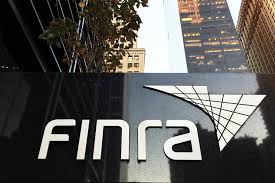
FINRA intends to codify its program to expedite administration of cases involving senior or seriously ill parties. As promised, we commissioned a survey on the program’s effectiveness, which reveals that the voluntary program has been marginally effective.
In SAA 2021-45 (Dec. 2), we reported that FINRA Dispute Resolution Services (“DRS”) was considering a rule change designed to codify and thereby increase the effectiveness of a special program created in 2004 to expedite the arbitration process for senior or seriously ill parties. While Arbitrators and staff have been trained to speed these cases along, one drawback has always been that the Codes of Arbitration Procedure don’t permit staff or arbitrators to shorten any timeframe in the rules without consent of the parties. The proposed change would address that problem. This welcome news made us wonder how well the current program has worked, so we commissioned a survey.
Survey Methodology
Unfortunately, it’s rare for an Award to mention when the arbitration process is being expedited. Instead, for the purposes of conducting a mini-survey on this issue, we isolated FINRA customer-member Awards identifying elder abuse as a cause of action or a claimant as elderly.* To make it most likely that the arbitrations were brought by and primarily on behalf of the elderly customers, rather than their estates, guardians, attorneys-in-fact, younger family members or other proxies, we limited the set of cases to those in which only one or two customers brought the claim in their individual capacities. Finally, we limited ourselves to Awards decided on the merits after an evidentiary hearing. For both Awards in cases with one or two claimants (totaling 66) and those in cases with only one claimant (49), we determined the median number of days from the filing date to the first hearing and the median number of days from the filing date to the issuance of the Award (turnaround time). By way of comparison, we calculated the same statistics for all FINRA customer-member Awards issued after a hearing on the merits from August 2007 through November 2021 (3,997).
Survey Says?
Our results show that the program only slightly improved case processing times. Median turnaround times were 463 days for senior customer Awards with one claimant, 470 days for those with one or two claimants, and 496 days for customers in general. Median times from filing to hearing were 419 days for elderly customer Awards with one claimant, 423 days for those with no more than two claimants and 453 days for customers in general. In short, while senior customers did tend to get to hearing and decision sooner than other customers, the advantage was slight. Even single elderly customers were able to shave only 8% off the time to hearing and 5% off the time to Award. Please note, however, that we can’t say how much time the expedited arbitration program actually saved, since we don’t know how many of these elderly claimants took advantage of it.
(ed: *We limited our focus to cases involving seniors since there were a statistically insignificant number of cases identifying seriously ill parties. These results – albeit based on a small sample size – to us underscores the wisdom of the proposed rule change. **Recent FINRA Awards identify when they are part of special procedures. If FINRA adopts the proposed expedited procedure rule and reports which Awards are subject to it, we will be in a better position to determine its effectiveness. ***For those interested in the technicalities of how we calculated the median number of days in sets with an even number of Awards, we can use the turnaround time for the set of 66 Awards with either one or two (presumably elderly) claimants as an example: we ordered them from smallest to largest turnaround times and then chose the relevant number in the 33rd Award. ****The data was provided courtesy of SAC’s Award database, which provides detailed information on securities arbitration Awards over the past 30+ years. *****The foregoing survey was conducted and this write-up was prepared by Harry A. Jacobowitz, President of HAJ Research and Writing LLC. Mr. Jacobowitz, a member of the Pennsylvania bar, and his firm perform legal research and writing for attorneys and handle substantive searches of SAC’s Award database. He can be contacted at harryjacobowitz@optimum.net.)

This post first appeared on the Securities Arbitration Alert blog. The blog’s editor-in-chief is George H. Friedman, Chairman of the Board of Directors for Arbitartion Resolution Services, Inc.





